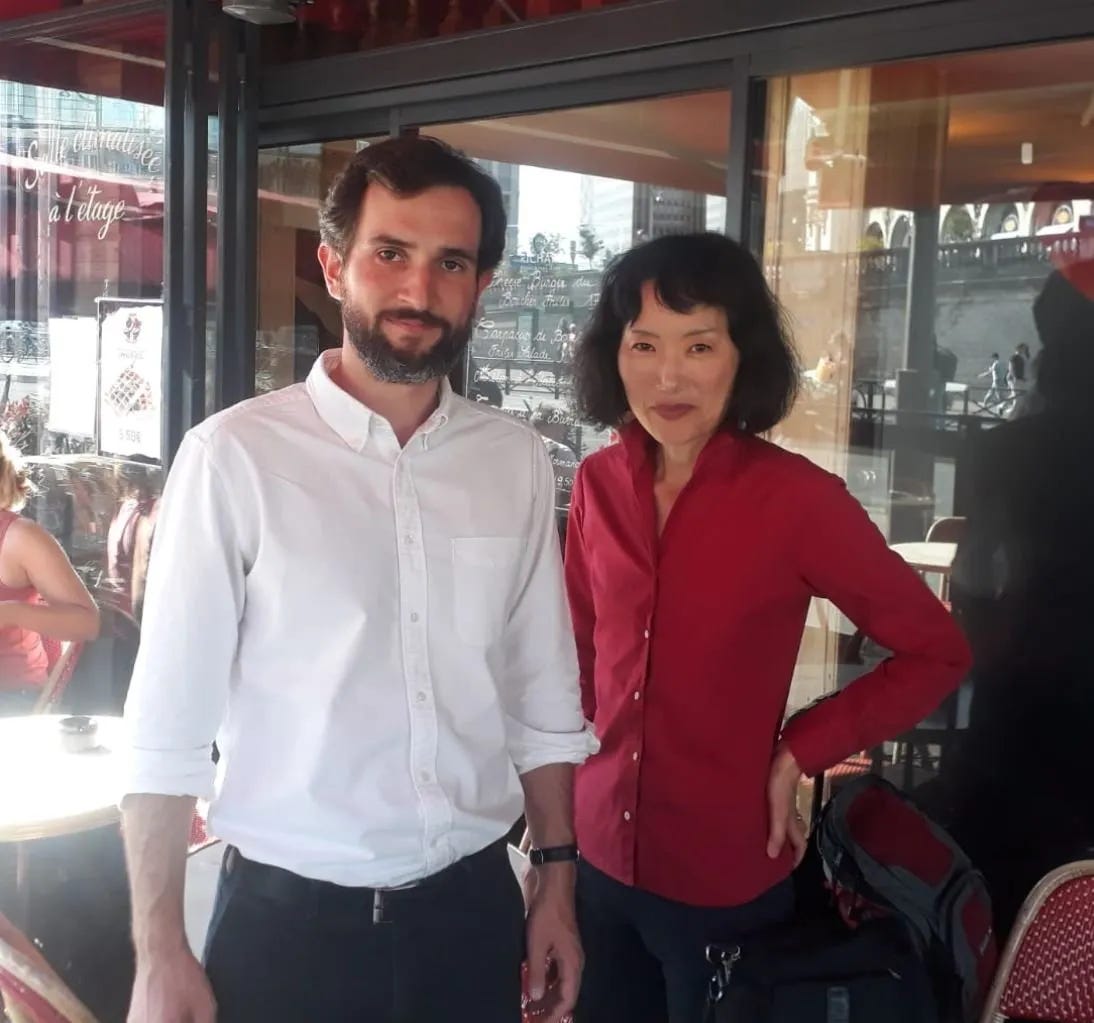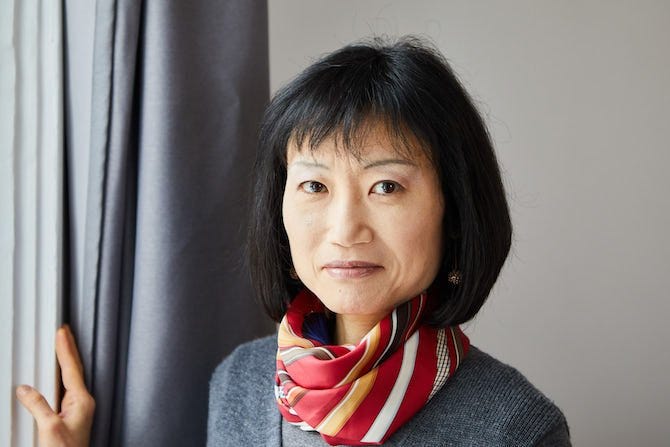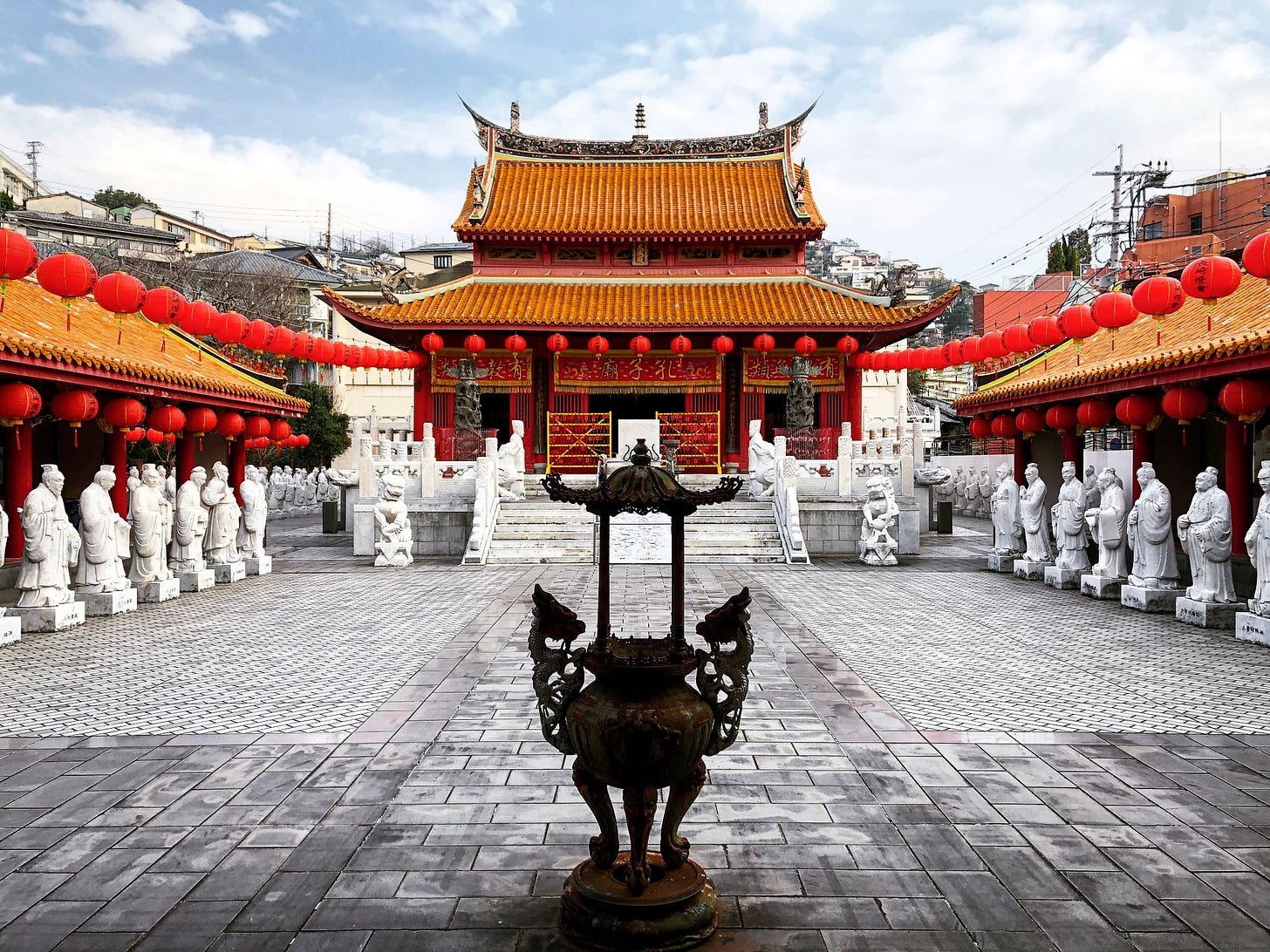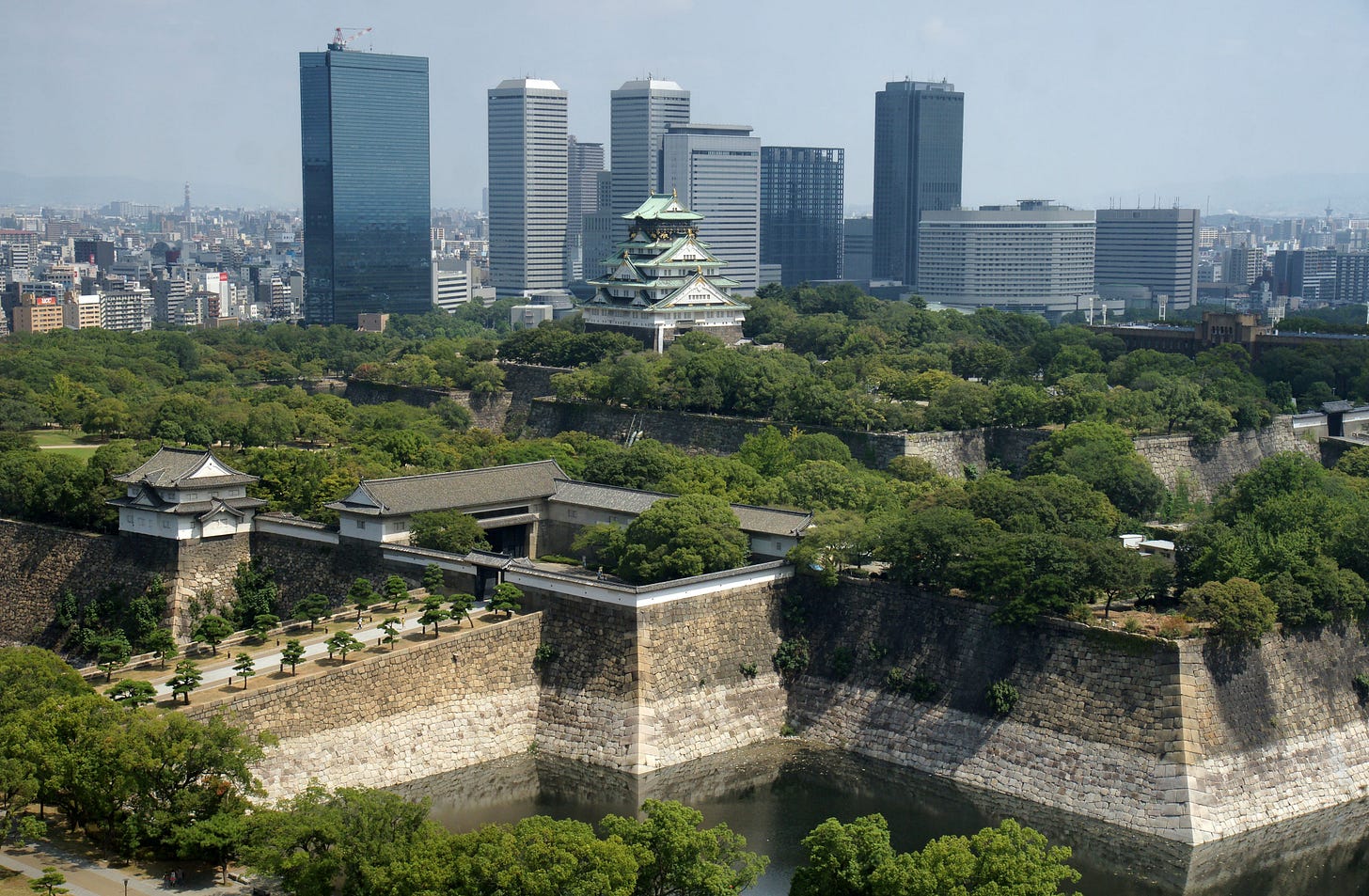The West through Japanese eyes
A conversation with Japanese historian Miho Matsunuma
Dear readers,
I had the pleasure of meeting Miho Matsunuma, a perfectly French-speaking Japanese historian who, after growing up in Tokyo, taught at university in France and Japan. She now lives in Montreal, Canada. Thanks to her life divided between Japan and the West, she reveals the profound cultural differences between these two worlds.
This article relates our conversation.
The genesis of this encounter is a little special: a few months ago, I read Le Monde's special issue "L'Histoire de l'Occident" (The History of the West), in which the historian gave an interview on the differences between Japanese and Western culture. I then shared the most interesting passages of this interview on twitter, which aroused great interest (over 90,000 views). Therefore I contacted the historian to let her know about the curiosity in her interview and to ask her some follow-up questions that had come to me after reading it. She informed me that she would be in Paris at the beginning of July, so we agreed to meet.
We met in a brasserie near the Gare de Lyon. For two hours, we discussed a wide range of subjects: cultural differences between Japan and the West, Japanese identity, Franco-Japanese relations... It was a fascinating exchange that would take too long to transcribe here fully. However, I wanted to share with you 4 of the most interesting points of this conversation:
Japanese identity
The affinities between Japan and France
The Japanese aversion to conflict and the French permanent spirit of contradiction
Universalism is not universal
1. Japanese identity
"The Japanese fundamentally believe that they are a unique and different people, and that their language and culture will remain impenetrable to foreigners", explains Miho Matsunuma in her interview for Le Monde's special issue. She confirms that while the Japanese are very welcoming and want foreigners to have a good image of their country, they remain convinced that a non-Japanese will never understand their culture, made up of hundreds of very specific social codes, rituals and unwritten rules. "In this respect, it's the opposite of Canada, a country of immigration where I've been living for 4 years and where my friends and neighbors already see me as a future citizen, ready to build tomorrow's society with them": it's a totally different mindset that dominates North America or Western Europe.
In my opinion, this explains the immense influence of Japanese culture around the world: Japan is acutely aware of its uniqueness and the need to preserve it. In so doing, it offers the world a unique, profound and coherent civilization that fascinates foreigners. This is one of the lessons from Japan.
2. The affinities between Japan and France
The French love Japan and vice versa. I first asked Miho Matsunuma why the Japanese have a particular interest in France: according to her, the Japanese like the French for their art of living, their taste for beautiful things and craftsmanship. The Japanese, a people with a strong sense of aesthetics, share these preferences, which may explain the strong affinity between Japan and France. Japan sees France as the land of Versailles, elegance and wine.
I think I'm right when I say that the French admire Japan for its unrivalled aesthetics and unique creations (manga, cuisine, technology, etc.), the products of "a civilization of exceptional refinement in sobriety and purity", in the words of Maurice Gourdault-Montagne, French ambassador to Japan from 1998 to 2022 (I've written a note on his memoirs here).

3. The Japanese aversion to conflict and the French permanent spirit of contradiction
It's hard to find two nations so different on the subject of public debate. The Japanese hate conflict in public: Miho Matsunuma explains that differences of opinion are perceived as personal attacks. This aversion to conflict among the Japanese is partly rooted in the Confucian heritage, which values order and social harmony. Confucius, a Chinese philosopher who lived in the 5th century BC, played as important a role in East Asia as Jesus and Plato did in Europe. Japan thus shares a common civilizational foundation with China. I've put together a few notes on Confucius and his influence on East Asian culture here.
In France, by contrast, critical thinking and opposition are valued, sometimes to the point of caricature. To borrow a phrase from philosopher Pierre-Henri Tavoillot's book Comment gouverner un peuple roi (How to rule a kingly people): in France, it's often "je pense, donc je suis contre" ("I think, therefore I'm against"). Where does this immoderate critical spirit come from? The Swiss essayist Joseph de Weck offers an interesting answer: "The French associate intelligence with skepticism. And since the French want above all to appear intelligent, being critical is the default mode of thinking in France. This is hardly surprising in the country that gave birth to René Descartes". The Japanese historian notes that the West is not a homogeneous block on this subject: this conflicting mindset is much less present in Canada than in France.
However, she sees critical thinking as a strength of the West. In her interview for Le Monde's special issue, she points out that "today, the West is the only place where one can criticize the established order of a country or regime and debate it publicly". She adds that "these rights (freedom of expression or thought) are legally recognized in non-Western countries such as Japan, where, however, the weight of conformism weighs so heavily that dissenting voices have difficulty being heard".
4. Universalism is not universal
"There's no search for universality in Japanese culture. Japan does not believe in the universal: it is suspicious of anything that is absolute and applies to everyone, since, in Japanese culture, everything is relative and ephemeral", explains Miho Matsunuma in Le Monde's special issue. The historian explains that the Japanese have a much more practical and concrete way of thinking than the French, who have an exacerbated taste for abstraction and great universal ideas such as Human Rights. Seen from Japan, this universalism appears to be a Western cultural peculiarity, the fruit of Greco-Roman and Christian heritage. I develop this topic in an article on British historian Tom Holland's book "Dominion, The Making of the Western mind".
Conclusion
I really enjoyed this discussion: a foreign view of our own culture brings to light what we no longer see because it has become totally natural to us (universalism, permanent debate and spirit of contradiction, etc.). It was all the more interesting to have had this discussion with Miho Matsunuma as she has been navigating between these two worlds for years, Japan and the West, and thus spotting their particularities.
We agreed to continue our conversation, by email and video.










